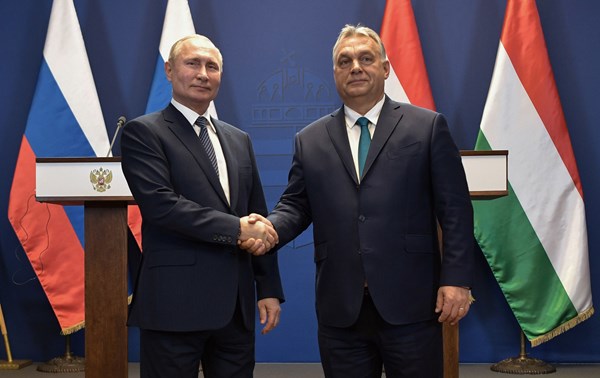Hungarian PM Viktor Orbán’s controversial diplomatic tour: meetings with Zelensky, Putin, and Xi stir EU debate
Hungarian Prime Minister Viktor Orbán, who has been on a so-called "peacekeeping mission" since early July with visits to Kyiv, Moscow, and Beijing, has written a confidential letter to EU leadership. In the letter, he detailed his meetings with Ukrainian President Volodymyr Zelensky and Russian President Vladimir Putin and explained the Kremlin's stance on the Russia-Ukraine war, reports Radio Liberty, citing the document obtained from a European official who wished to remain anonymous.
Dated July 5 and sent from Azerbaijan, which Orbán visited after his trip to Moscow but before meeting Chinese President Xi Jinping in Beijing , the letter is addressed to European Council President Charles Michel and leaders of the EU member states.
According to Orbán's letter, the Kremlin is convinced that "time is not on Ukraine's side, but on the side of Russian forces." Putin estimates the Ukrainian Armed Forces' losses at 40-50 thousand personnel per month, with no mention of Russian casualties.
"President of Russia was surprised that the President of Ukraine rejected a temporary ceasefire," Orbán wrote. He added that Moscow, according to his claims, is ready "to consider any ceasefire proposal that does not serve as a cover for redeploying and regrouping Ukrainian forces."
The news outlet the Current Time also reports on Viktor Orbán's private letter to the EU leadership. The article points out that Putin still views the 2022 "Istanbul Agreements" as relevant, particularly emphasizing the fifth point concerning "international security guarantees to be provided to Ukraine."
A second document Orbán claimed to have discussed with Putin is the "China-Brazil Peace Plan" (common political settlement agreements between China and Brazil regarding the Ukrainian crisis). Orbán notes that this plan is "under consideration by the Russian side."
The Hungarian PM believes Europe must take the initiative to start peace processes in the Russia-Ukraine war. "If we cannot contain or stop this process in the next two months, we will witness more dramatic losses and military events on the front line than ever before," Orbán wrote in his letter, quoted by Current Time.
On July 8, Hungarian Prime Minister Viktor Orbán met in Beijing with Chinese President Xi Jinping. The main topic of their discussions, according to Orbán, was the path to starting peace negotiations to end Russia's war against Ukraine. "China is a key player in creating conditions for resolving the conflict between Russia and Ukraine," Orbán wrote on social network X.
Earlier, on July 5, Orbán made an unannounced visit to Moscow where he met Russian President Vladimir Putin. Orbán stated that he learned Putin's opinions on three issues: various peace initiatives, the possibility of a ceasefire and peace talks, and his vision of Europe post-war.
Prior to this, on July 2, Orbán met with Ukrainian President Volodymyr Zelensky in Kyiv. Speaking at a joint press conference with the Ukrainian leader, the Hungarian Prime Minister noted that Budapest values Kyiv's initiatives aimed at achieving peace but believes their implementation will require significant time. "Therefore, I asked the President to consider whether it might be possible to act a bit differently: to stop firing and then negotiate with Russia, as a ceasefire would accelerate the pace of these negotiations," Orbán said.
Later, in an interview with Bloomberg, Zelensky stated that Ukraine is not ready for a temporary ceasefire, as Russia could use this period to build up its forces in the occupied territories.
The European Union sharply criticized Viktor Orbán's trip to Moscow. "A policy of appeasement will not stop Putin," wrote European Commission President Ursula von der Leyen in social network X. "Only unity and resolve will pave the way to a comprehensive, just, and lasting peace in Ukraine."
EU foreign policy chief Josep Borrell, European Council President Charles Michel, and German Chancellor Olaf Scholz emphasized that despite Hungary's current presidency of the Council of the European Union, Orbán "in no way" represents EU interests in Moscow but acts independently as Hungary's Prime Minister.
"The EU's position is crystal clear: we condemn Russia's aggressive war. Ukraine can count on our support," wrote Olaf Scholz on social network X.
Meanwhile, Slovak Prime Minister Robert Fico praised Viktor Orbán for his initiative and said he would have joined him on the trips, had his health permitted following an assassination attempt.
